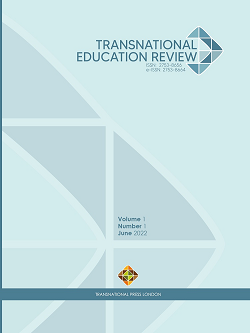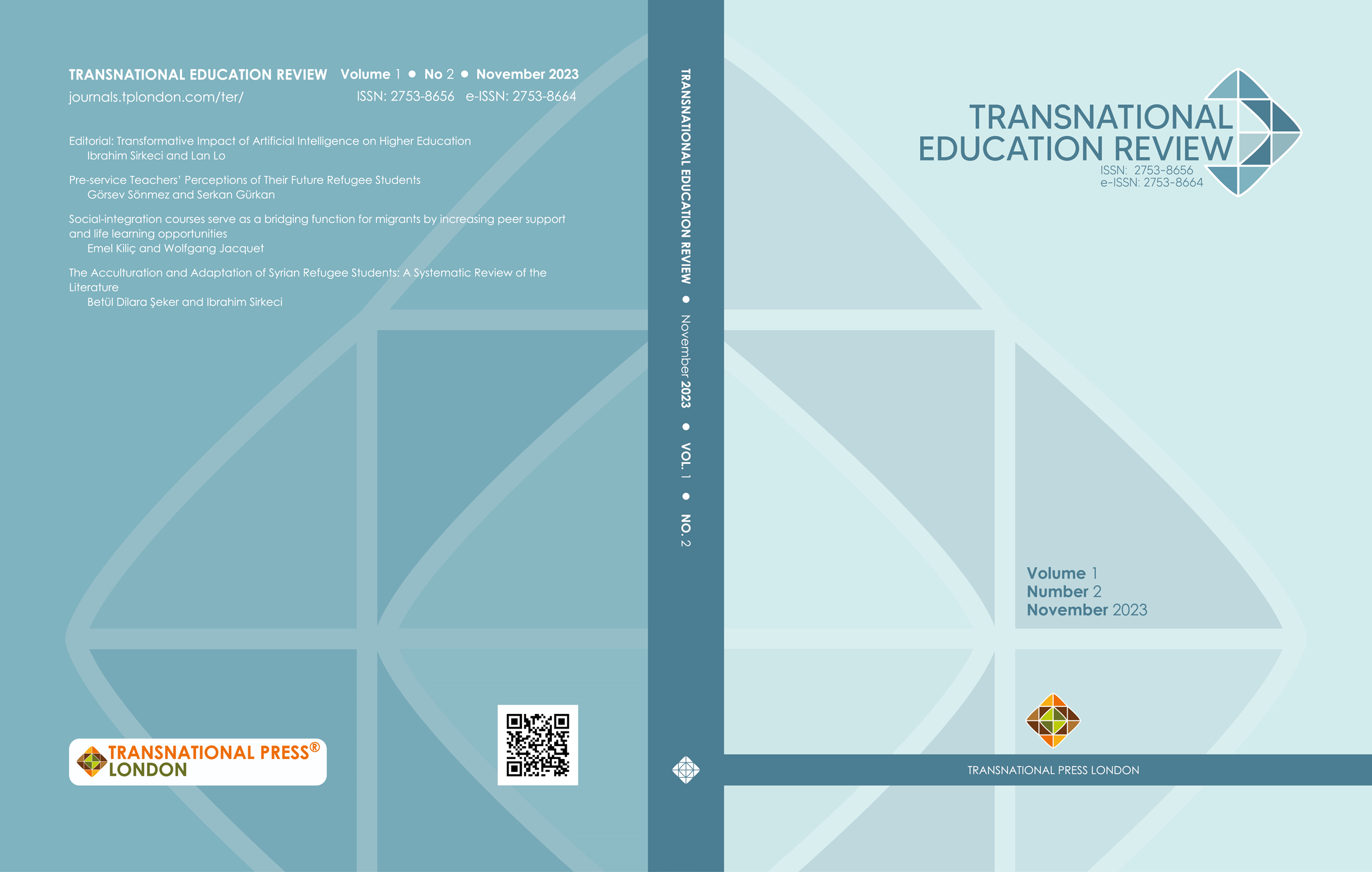About the Journal
 Transnational Education Review (TER) is an international peer-reviewed Open Access journal facilitating scholarly exchange on education and cross border implications, practices and policies involving researchers, policy makers, practitioners, agents, donors, families and students as key stakeholders. The Journal welcomes all contributions on education in broadest meaning. At the same time, contributions focusing on transnational education and international dimension are particularly encouraged. Transnational education is defined by UNESCO and CoE as "all types of higher education study programmes, or sets of courses of study, or educational services (including those of distance education) in which the learners are located in a country different from the one where the awarding institution is based. Such programmes may belong to the education system of a State different from the State in which it operates, or may operate independently of any national education system." With the long lasting impact of COVID-19 pandemic, transnational education, especially in open and distance learning is likely to gain more importance. TNE has been important revenue stream for institutions in many countries including the UK while many other countries are ambitious about it. Therefore, Transnational Education Review encourages contributions on policy and governance aspects not restricted to the soft power and influence but also on development and international cooperation.
Transnational Education Review (TER) is an international peer-reviewed Open Access journal facilitating scholarly exchange on education and cross border implications, practices and policies involving researchers, policy makers, practitioners, agents, donors, families and students as key stakeholders. The Journal welcomes all contributions on education in broadest meaning. At the same time, contributions focusing on transnational education and international dimension are particularly encouraged. Transnational education is defined by UNESCO and CoE as "all types of higher education study programmes, or sets of courses of study, or educational services (including those of distance education) in which the learners are located in a country different from the one where the awarding institution is based. Such programmes may belong to the education system of a State different from the State in which it operates, or may operate independently of any national education system." With the long lasting impact of COVID-19 pandemic, transnational education, especially in open and distance learning is likely to gain more importance. TNE has been important revenue stream for institutions in many countries including the UK while many other countries are ambitious about it. Therefore, Transnational Education Review encourages contributions on policy and governance aspects not restricted to the soft power and influence but also on development and international cooperation.
Transnational Education Review is an Open Access publication, allowing users to freely access, download, copy, distribute, print, search, or link to full-text articles for any lawful purpose without requiring permission from the publisher or author.
Abbreviation: Trans. Ed. Rev.
ISSN: 2753-8656 (Print) ISSN: 2753-8664 (Online)
Founded in 2021, Transnational Education Review is published twice a year in May and November.






